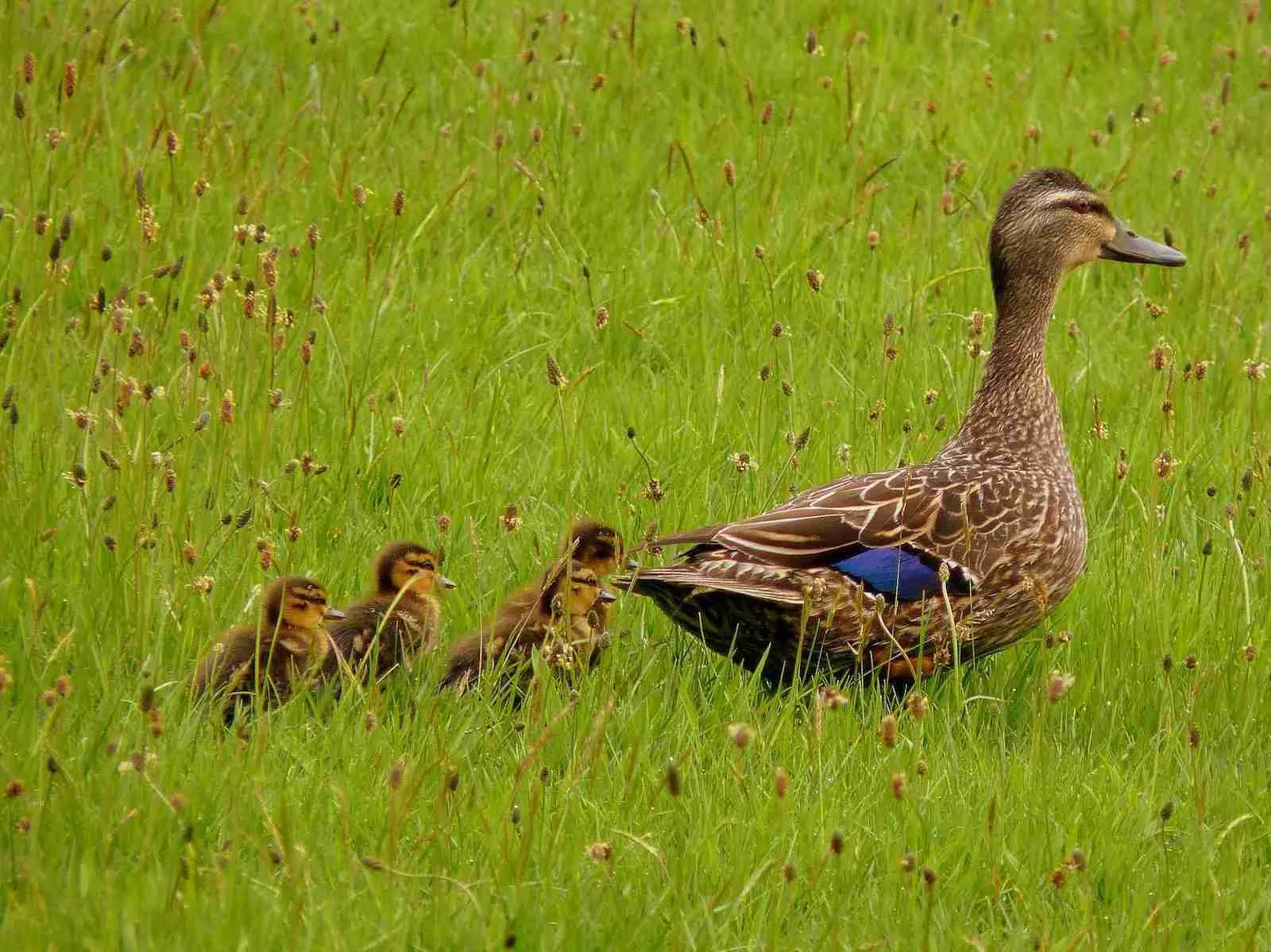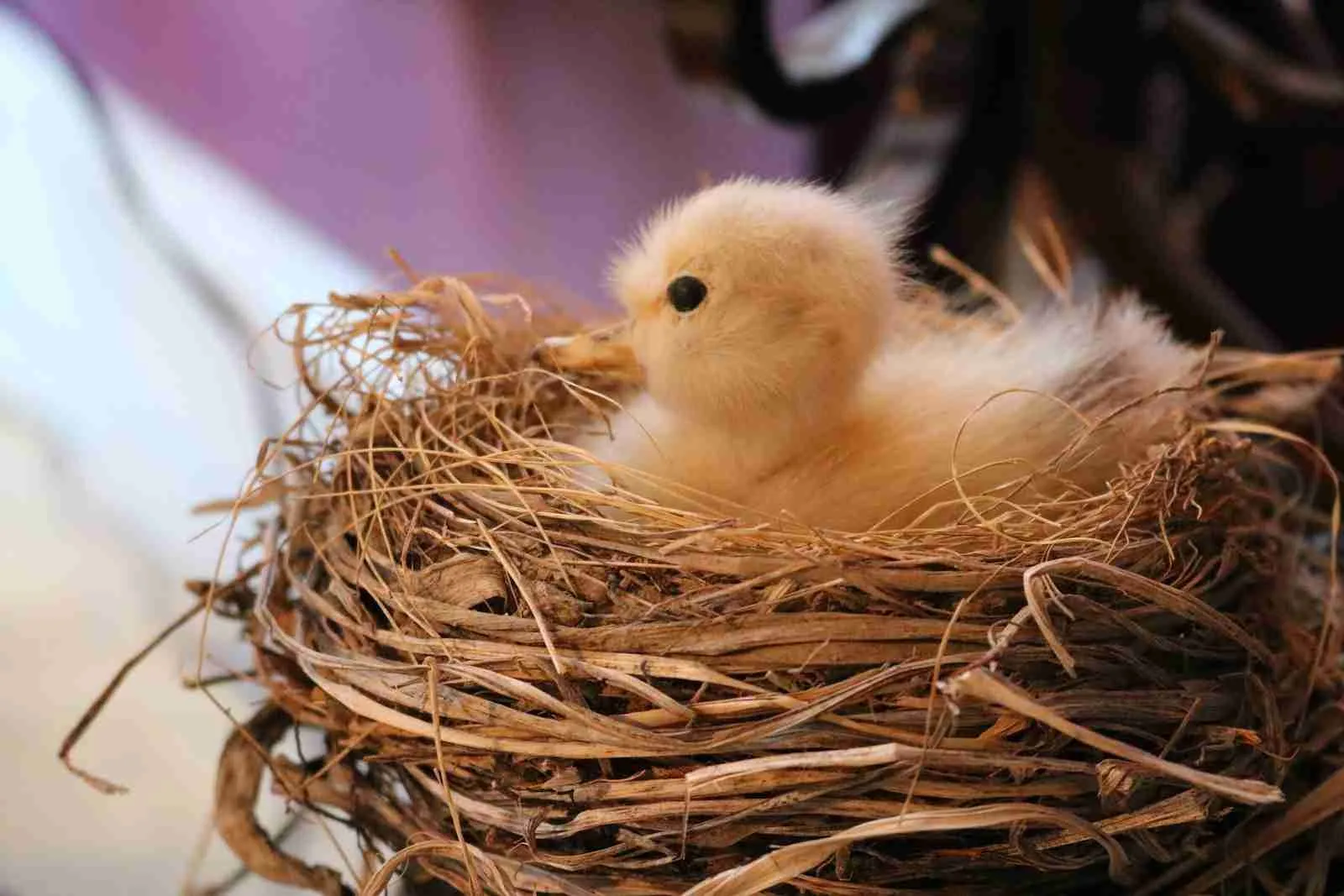Have you ever come across a mother duck and her adorable little ducklings while taking a stroll near a pond? It’s truly heartwarming to see them waddle around in their fluffy, yellow feathers. But have you wondered how exactly does the mother duck manage to feed all of her hungry offspring?
Feeding multiple mouths can be quite an arduous task, especially when they’re as tiny and delicate as those belonging to baby ducks.
In this article, we’ll delve into the fascinating world of these feathered families to understand just how mama duck manages to ensure each one of her youngsters gets its fair share of sustenance.
So sit back, relax, and prepare for some serious cuteness overload!
The Role Of Instinct In Feeding Ducklings
The role of instinct in feeding ducklings is essential, as it forms the basis for their survival and growth. Instinctual bonding between a mother duck and her offspring not only ensures safety and protection but also lays the foundation for learning necessary skills such as feeding.
Ducklings are born with an innate ability to peck at objects on or near the surface of water, guided by their mother’s guidance which helps them identify edible items from potential hazards. This natural behavior becomes more refined over time, allowing these young birds to become proficient feeders capable of sustaining themselves independently.
As we delve deeper into this topic, let us explore some common natural food sources that baby ducks rely upon during their early days under the watchful eye of their caring mothers.
Natural Food Sources For Baby Ducks
Like a symphony of nature, the intricate dance between duckling nutrition and pond ecosystems plays out in harmony as mother ducks lead their offspring to natural food sources.
These tiny aquatic explorers are introduced to an underwater buffet composed mainly of insects, small fish, crustaceans, seeds, and aquatic plants that provide essential nutrients for growth and development.
The vast variety found within these watery realms ensures that each duckling receives a well-rounded diet, building a strong foundation for future survival skills.
This delicate balance sets the stage for the process of foraging together as a feathered family unit- an adventure we’ll delve into next.
The Process Of Foraging Together
Group hunting strategies, like swimming in an S-pattern formation, help mother ducks and their ducklings to find food more efficiently.
Ducklings tend to follow their mother’s lead when it comes to foraging, learning which foods are edible and how to find them.
Parental foraging support helps ducklings to survive, as mothers often provide food for their young directly from their own bill.
Group Hunting Strategies
Imagine the heartwarming sight of a mother duck and her adorable ducklings, paddling gracefully through tranquil waters as they search for food.
They rely on their innate group communication skills to coordinate their aquatic teamwork during these vital foraging sessions.
The clever little ones learn from mama duck’s cues and gestures, ensuring that each member is both safe and well-fed.
This synchronized dance of survival not only secures nutritional sustenance but also strengthens family bonds that will last a lifetime – an essential component in the lives of these endearing creatures.
Foraging Habits Of Ducklings
As they forage together, it’s important to note that ducklings aren’t just learning valuable life skills – they’re also avoiding potential dangers.
When searching for aquatic vegetation and small insects in the water, they have to be constantly on guard against duckling predators such as large fish, birds of prey, and even other ducks.
Mama duck plays a crucial role in protecting her brood by keeping an eye out for these threats and guiding them to safety when necessary.
In doing so, she teaches them not only how to find food but also how to stay alive while doing it.
Parental Foraging Support
As ducklings navigate the world of foraging and learn to avoid various dangers, they also benefit greatly from their parents’ support.
Mama duck doesn’t just lead her brood through aquatic plants in search of insects; she’s constantly vigilant against threats that could harm them.
With her guidance and watchful eye, the little ones can safely explore their environment while picking up essential survival skills along the way.
Thus, parental involvement in foraging not only helps ducklings find food but also teaches them how to protect themselves from potential predators lurking nearby.
Teaching Ducklings To Feed Themselves
As ducklings grow and begin developing their independence, a mother duck will gradually start teaching her offspring self-feeding techniques. This is an essential part of the process for ensuring that her young are prepared to thrive on their own in the wild.
In order to facilitate this crucial skill development, she employs several strategies:
- Demonstrating: The mother duck actively demonstrates how to find food by dipping her beak into water or mud while making feeding motions.
- Encouraging Exploration: She encourages her ducklings to explore their surroundings and discover different types of foods they can consume.
- Guiding Them Towards Food Sources: Lastly, she guides them towards various food sources such as aquatic plants and insects.
By using these methods, a mother duck equips her ducklings with the necessary skills to feed themselves without constant supervision from their parent. This invaluable knowledge sets them up for success as they transition into adulthood and face environmental challenges independently.
As we delve further into supplementing diets for domestic ducklings, it’s important to keep these natural processes in mind and mimic them where possible.
Supplementing Diets For Domestic Ducklings
As the sun rises over a tranquil pond, casting its golden rays upon the water’s surface, one cannot help but be captivated by the sight of a mother duck dutifully tending to her brood.
In their natural habitat, these doting mothers provide for their young primarily through insects and other small aquatic creatures.
However, when it comes to domestic nutrition for our feathered friends, providing balanced meals that ensure optimal health may require some additional care and consideration from their human caretakers as they grow into healthy adult ducks.
Frequently Asked Questions
How Do Mother Ducks Protect Their Ducklings From Predators While Feeding?
Mother ducks employ various strategies to protect their ducklings from predators while feeding. One of the primary methods they use is predator deterrents, which involve exhibiting aggressive behavior and making loud noises in an attempt to scare off potential threats.
Additionally, mother ducks utilize camouflage techniques that allow them and their young to blend seamlessly into their surroundings, making it harder for predators to spot them as they search for food. By employing these tactics, mother ducks can help ensure the safety of their vulnerable offspring during this crucial stage of life.
Do Mother Ducks Have A Specific Feeding Schedule For Their Ducklings?
Much like a well-orchestrated symphony, mother ducks have an innate sense of timing when it comes to the feeding schedule for their ducklings.
Duckling nutrition is essential to ensure healthy growth and development, and the feeding techniques employed by mother ducks vary depending on factors such as age, size, and the availability of food sources.
While there isn’t a rigidly specific timetable that all mother ducks adhere to, they do make sure to provide ample opportunities for their little ones to feed throughout the day.
In doing so, these attentive mothers successfully manage the delicate balance between satisfying their offspring’s hunger and keeping them safe from potential predators during mealtime.
Are There Any Food Sources That Mother Ducks Avoid For Their Ducklings’ Safety?
When it comes to ensuring a safe duckling diet, mother ducks are quite cautious about the food sources they choose for their offspring. They primarily focus on providing a variety of aquatic plants, insects, and small fish that promote healthy growth without posing any threats.
Safe foraging is essential in this process as there might be certain food items or environments that can be harmful to young ducklings. For example, mother ducks tend to avoid feeding areas with polluted water or toxic algae blooms, which could have detrimental effects on their little ones’ health.
Overall, selecting appropriate and safe food sources plays an important role in the well-being of growing ducklings.
How Do Mother Ducks Deal With Competition For Food Sources With Other Bird Species?
Interestingly, around 14% of bird species worldwide engage in some form of inter-species rivalry for food and resources.
In the case of mother ducks dealing with competition for food sources with other bird species, they often rely on their natural instincts to protect their ducklings from potential threats.
Resource availability plays a significant role in determining how fiercely these ducks compete with other birds.
If there is an abundance of food, the likelihood of confrontation may be reduced.
However, when resources are scarce, mother ducks might become more aggressive, chasing away competitors or leading their young to safer areas where food can be found without risking harm from rivals.
It’s essential for mother ducks to balance protecting their offspring while ensuring access to adequate nutrition as it ultimately influences both survival rates and overall population growth within the species.
How Long Does It Take For A Duckling To Transition From Being Fed By Their Mother To Independent Feeding?
During the early stages of a duckling’s development, they gradually transition from being fed by their mother to independent feeding.
This process typically takes about two to four weeks, depending on the species and individual growth rates.
Throughout this critical period in their lives, ducklings exhibit various feeding adaptations that enable them to forage efficiently while still benefiting from their mother’s guidance and protection.
As they grow older and become more self-sufficient, these young ducks will eventually rely less on their mothers for nourishment and learn how to find food sources on their own, which is essential for their long-term survival in the wild.
Conclusion
As the sun sets on a peaceful pond, we can’t help but admire the tender care and devotion of mother ducks as they nurture their little ones.
The unwavering protection she provides while guiding her ducklings to safe feeding grounds symbolizes our own innate instincts to care for those we love.
In life’s journey, may we find strength in the lessons taught by these gentle creatures; from sheltering loved ones amidst danger to embracing independence when it’s time to spread our wings and fly.

An avid ornithologist, zoologist and biologist with an unwavering passion for birds and wild animals.
Dr. Wilson’s journey in ornithology began in childhood and led him to obtain a Ph.D. in Ornithology from the prestigious Avian Research Institute. He has worked closely with renowned experts in the field and conducted extensive research and field studies globally.


